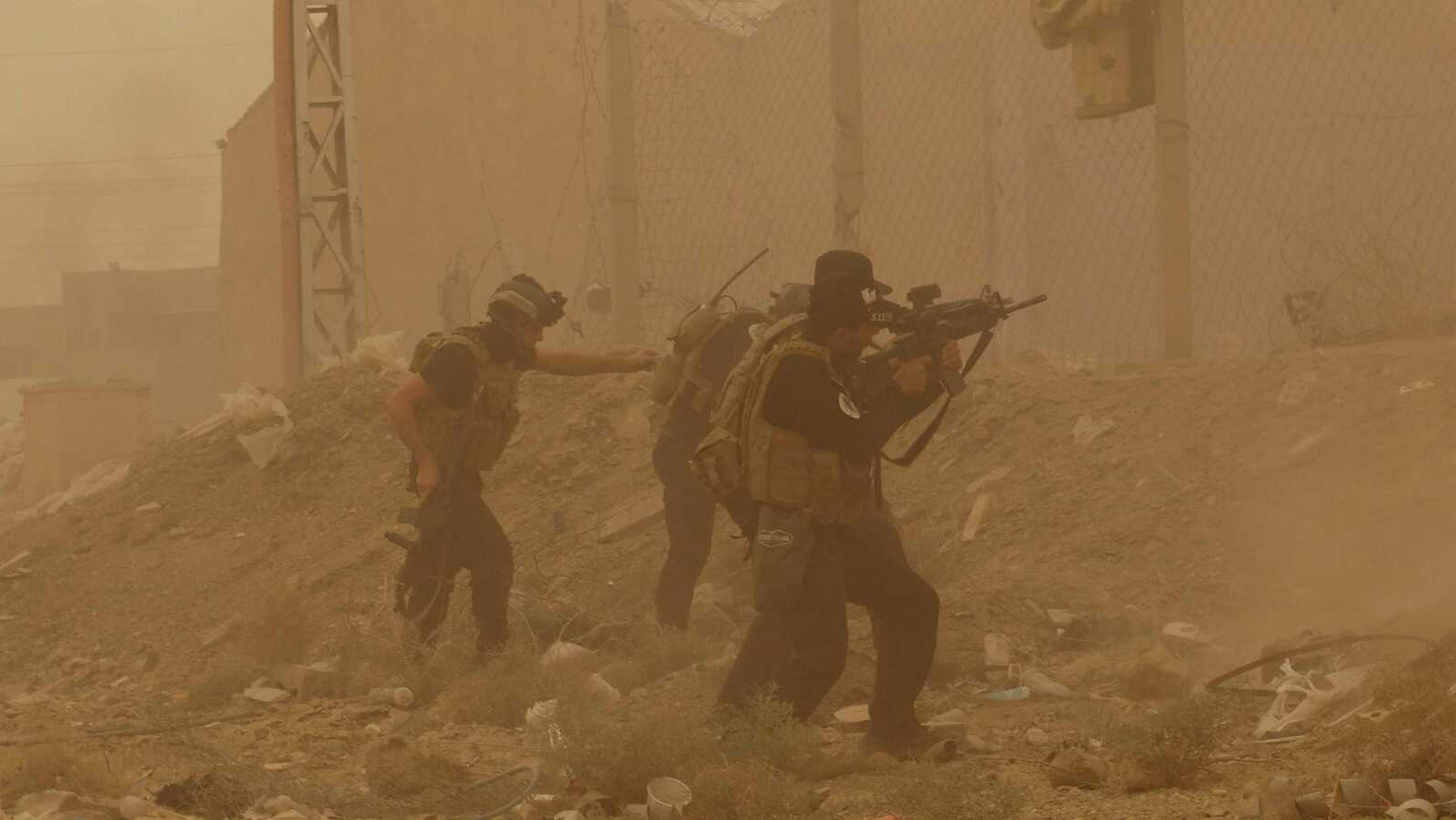Islamic State suicide attacks kill 17 Iraqi troops
BAGHDAD -- As Iraqi forces gathered for a major new offensive to try to take back the Sunni heartland of Anbar province, Islamic State militants struck first, unleashing a wave of suicide bombings that killed at least 17 soldiers. The attacks outside the extremist-held city of Fallujah came hours after the Iraqi government announced the start of a wide-scale operation to recapture areas under Islamic State control in the vast desert province that stretches to the border with Jordan...
BAGHDAD -- As Iraqi forces gathered for a major new offensive to try to take back the Sunni heartland of Anbar province, Islamic State militants struck first, unleashing a wave of suicide bombings that killed at least 17 soldiers.
The attacks outside the extremist-held city of Fallujah came hours after the Iraqi government announced the start of a wide-scale operation to recapture areas under Islamic State control in the vast desert province that stretches to the border with Jordan.
Militants used a sandstorm that engulfed most of Iraq to launch the wave of bombings late Tuesday night, Brig. Gen Saad Maan Ibrahim, the spokesman for the Joint Military Command, said.
He said it was not clear how many suicide attackers were involved in the bombings, but they struck from multiple directions at Iraqi troops who were gathered near a water control station and a lock system on a canal between the Euphrates River and Lake Tharthar as they prepared to deploy.
Last month, the water station near Fallujah fell into the hands of the militants after attacks that included suicide bombings that killed a general commanding the 1st Division and a dozen other officers and soldiers, Ibrahim said.
Iraqi government forces retook the station a few days later. Fallujah lies to the east of the Anbar provincial capital of Ramadi -- captured 10 days ago by the Islamic State militants in a defeat for Iraqi troops.
The military, humiliated last year when it crumbled in the face of the militant onslaught in the city of Mosul, had regained momentum after its victory in Saddam Hussein's hometown of Tikrit last month. The campaign to retake Anbar, which is said to be backed by Shiite militias and pro-government Sunni fighters, is deemed critical in regaining momentum in the fight against the Islamic State group.
The capture of Ramadi, followed a few days later by the fall of the ancient Syrian town of Palmyra, showed the Islamic State group's ability to advance in both countries despite months of U.S.-led airstrikes. Capt. Andrew Caulk, a U.S. Air Force spokesman in Qatar, said it will continue to provide air support "to government-controlled Iraqi forces" throughout the country, including near Ramadi, where it has been carrying out airstrikes for several months.
In Palmyra, Syrian activists said Islamic State militants shot dead a group of detainees in the Roman theater in the town's ancient ruins after gathering people to watch. They said Islamic State gunmen killed at least 15 men after accusing them of having fought with President Bashar Assad's troops.
The slayings were reported by activists belonging to a Palmyra-based media collective and the Britain-based Syrian Observatory for Human Rights.
The theater is part of the 2,000-year-old Roman-era ruins in Palmyra.
Syria's foreign minister said Wednesday that his government was "not pinning any hopes" on the U.S.-led coalition carrying out airstrikes against Islamic State group militants in his country.
At a news conference in Damascus, Walid al-Moallem said the coalition was active in preventing the Kurdish town of Kobani from falling to the extremists last year but that support seems to have "evaporated" after that.
The United States did nothing to prevent Palmyra in Syria or Anbar province in Iraq from falling into their hands, he said.
"We're not pinning any hopes on that alliance and anyone who does is living an illusion," al-Moallem added.
He said Iraq and Syria were fighting the same battle but added that security coordination between their two armies "has not reached the desired levels."
Also Wednesday, Syrian activists said the Islamic State group released two elderly Christian women who had been held along with dozens of others since February in northeastern Syria.
At the time, they kidnapped more than 220 Assyrian Christians after overrunning several farming communities on the southern bank of the Khabur River in Hassakeh province.
The two women, who are 70 and 75 years old, were released Tuesday and have now reached the northwestern city of Hassakeh, said Osama Edwards, director of the Assyrian Network for Human Rights.
Another activist group, the Syrian Observatory for Human Rights, said the two were likely released because of their poor health. Some of the captives had been released previously.
Edwards said the Islamic State group is still holding 210 Assyrian Christians and is demanding $100,000 for each hostage.
Connect with the Southeast Missourian Newsroom:
For corrections to this story or other insights for the editor, click here. To submit a letter to the editor, click here. To learn about the Southeast Missourian’s AI Policy, click here.









